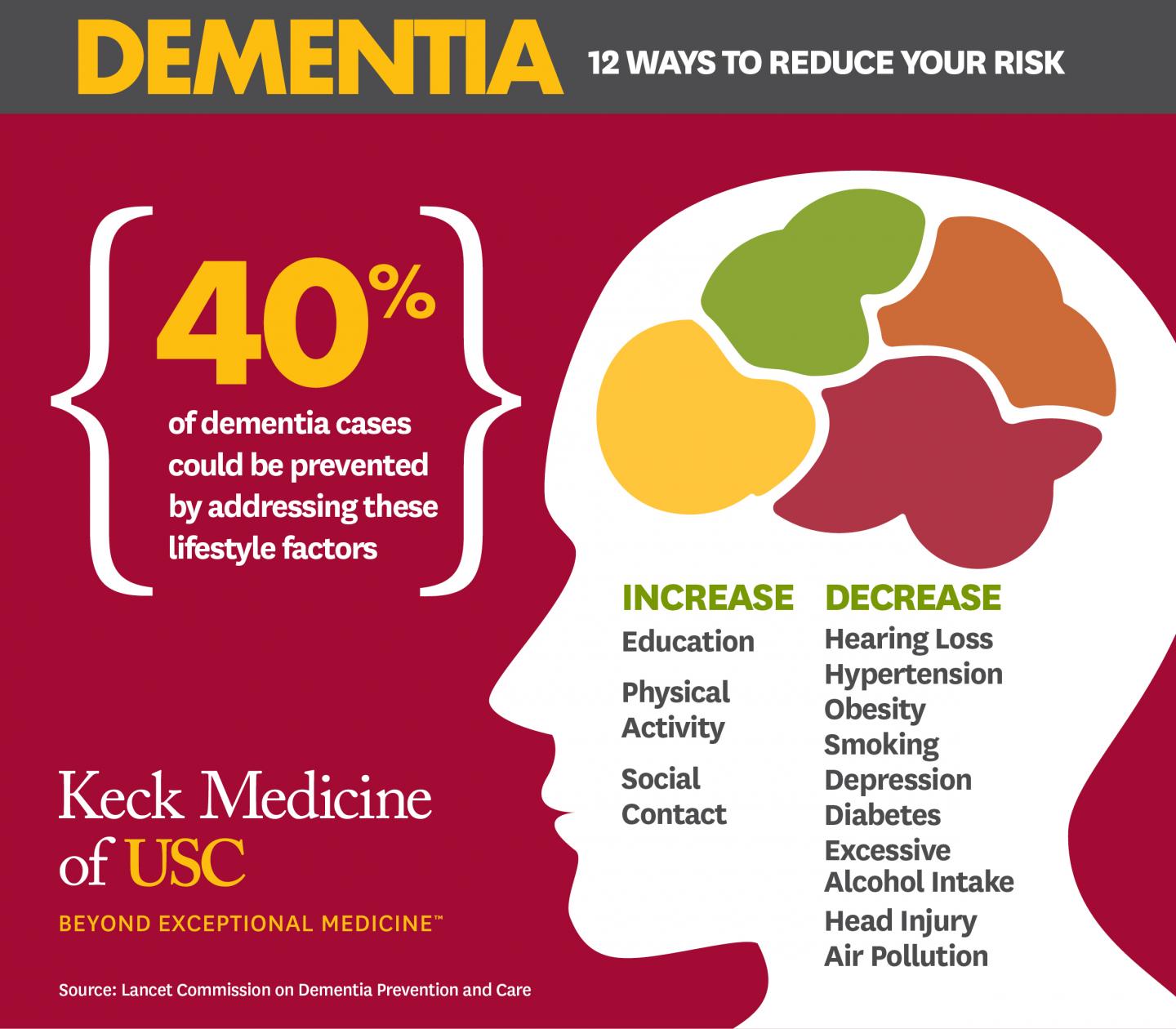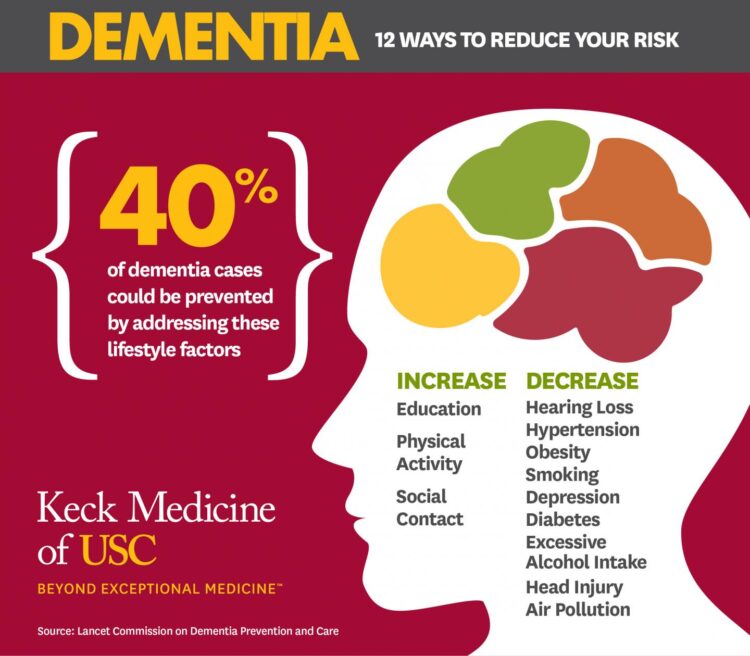An update to the Lancet Commission on dementia prevention, intervention and care adds excessive alcohol intake, head injury and air pollution to nine previously identified modifiable risks

Credit: Courtesy of Keck Medicine of USC
LOS ANGELES — Modifying 12 risk factors over a lifetime could delay or prevent 40% of dementia cases, according to an updated report by the Lancet Commission on dementia prevention, intervention and care presented at the Alzheimer’s Association International Conference (AAIC 2020).
Twenty-eight world-leading dementia experts added three new risk factors in the new report — excessive alcohol intake and head injury in mid-life and air pollution in later life. These are in addition to nine factors previously identified by the commission in 2017: less education early in life; mid-life hearing loss, hypertension and obesity; and smoking, depression, social isolation, physical inactivity and diabetes later in life (65 and up).
“We are learning that tactics to avoid dementia begin early and continue throughout life, so it’s never too early or too late to take action,” says commission member and AAIC presenter Lon Schneider, MD, co-director of the USC Alzheimer Disease Research Center’s clinical core and professor of psychiatry and the behavioral sciences and neurology at the Keck School of Medicine of USC.
Dementia affects some 50 million people globally, a number that is expected to more than triple by 2050, particularly in low- and middle-income countries where approximately two-thirds of people with dementia live, according to the report. Women are also more likely to develop dementia than men.
However, in certain countries, such as the United States, England and France, the proportion of older people with dementia has fallen, probably in part due to lifestyle changes, demonstrating the possibility of reducing dementia through preventative measures, Schneider says.
Schneider and commission members recommend that policymakers and individuals adopt the following interventions:
- Aim to maintain systolic blood pressure of 130 mm Hg or less from the age of 40.
- Encourage use of hearing aids for hearing loss and reduce hearing loss by protecting ears from high noise levels.
- Reduce exposure to air pollution and second-hand tobacco smoke.
- Prevent head injury (particularly by targeting high-risk occupations).
- Limit alcohol intake to no more than 21 units per week (one unit of alcohol equals 10 ml or 8 g pure alcohol).
- Stop smoking and support others to stop smoking.
- Provide all children with primary and secondary education.
- Lead an active life into mid-life and possibly later life.
- Reduce obesity and the linked condition of diabetes.
The report also advocates for holistic, individualized and evidenced-based care for patients with dementia, who typically have more hospitalizations for conditions that are potentially manageable at home and are at greater risk for COVID-19. In addition, it recommends providing interventions for family caregivers who are at risk for depression and anxiety.
The commission members conducted a thorough investigation of all the best evidence in the field, including systematic literature reviews, meta-analyses and individual studies, to reach their conclusions.
###
For more information about Keck Medicine of USC, please visit news.KeckMedicine.org.
Media Contact
Gabriella Robison
[email protected]
Related Journal Article
http://dx.





